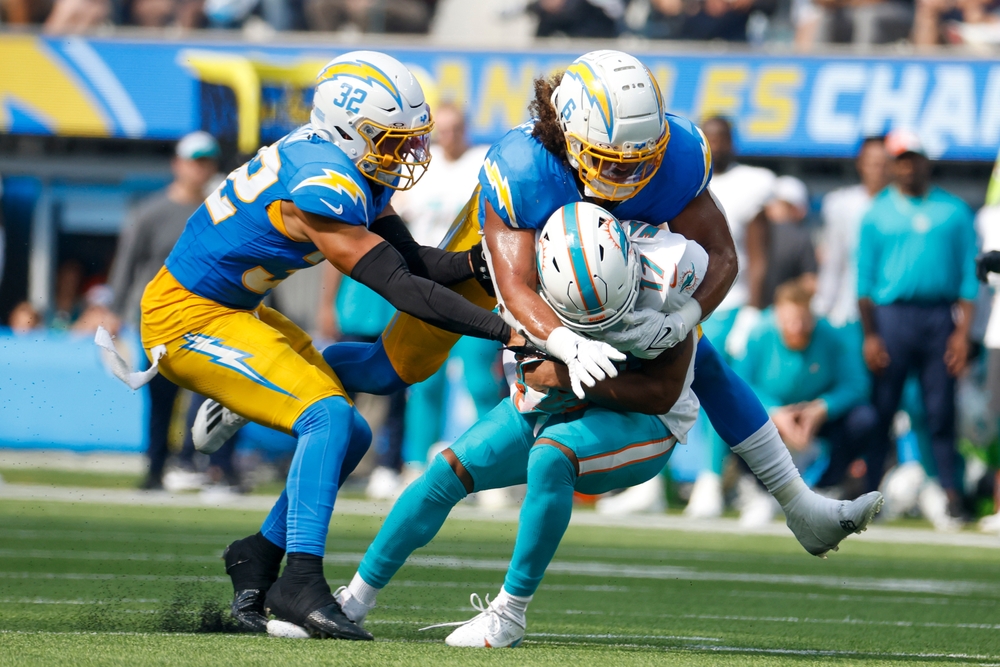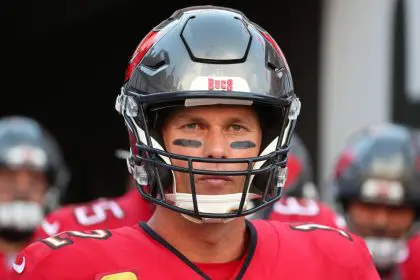The contrast couldn’t be starker. While Atlanta Falcons safety Jessie Bates III now enjoys postgame family time in a comfortable Mercedes-Benz Dome suite, his former Cincinnati teammates still gather with loved ones under a tent in the parking lot, exposed to the elements and lacking basic amenities.
This disparity reveals a troubling reality across the NFL: how teams treat player families varies dramatically, creating a hidden factor that increasingly influences free agency decisions and organizational culture. The NFLPA’s annual survey of 1,695 players has exposed these inequities, with some franchises earning F-minus grades while others achieve excellence.
The shocking reality of NFL family treatment disparities
The Bengals’ F-minus rating in family treatment represents more than poor customer service—it reflects fundamental organizational priorities. Current Bengals players, speaking anonymously to avoid team conflicts, described their family experience as a “s–t show,” particularly during Cincinnati’s harsh winter games.
“Just different things where they can make it more convenient for our families, especially when the husband’s not there,” explained one veteran player. “We’re worried about them. I think it would be easier for us if we had certain things for families, we don’t have to worry about it.”
The NFL family treatment survey revealed that Cincinnati lacks dedicated family bathrooms and concessions, forcing wives and children to wait in long general admission lines. For players with young children—a significant portion of the league—these logistical challenges create security concerns and unnecessary stress during game days.
How elite organizations master NFL family treatment
The Minnesota Vikings exemplify outstanding NFL family treatment, earning recognition that directly impacts their recruiting success. The organization assigns support staff to handle every detail of family visits, from hotel accommodations to ticket coordination to sideline access.
“It just makes it that much easier,” Vikings running back Aaron Jones explained. “Your family’s not, ‘Hey, I’m trying to find a place to stay. Where are you guys staying? What’s the closest hotel?’ It just takes all of that away.”
Center Ryan Kelly, who joined Minnesota as a free agent, cited the NFL family treatment survey as a major factor in his decision. “If you treat my family well, I’m going to be happier as a person, I’m going to be happier as a player,” Kelly noted. “Being only there for a little over 24 hours [to sign], we felt that as my entire family was there.”
The Vikings’ comprehensive approach includes halftime childcare featuring face painting, petting zoos, and activities designed to keep children engaged throughout games. This attention to detail demonstrates how superior NFL family treatment becomes a competitive advantage in player acquisition.
The business impact of poor NFL family treatment
Jacksonville Jaguars players, who gave their organization an F grade for family treatment, described basic communication breakdowns that create unnecessary anxiety. “When we have to [be the person] to give them the tickets or [be the person] to give them all these things, [stuff] happens,” one veteran explained.
The player continued: “I want to make sure that my family is OK so I don’t have to worry about them. [Sometimes] these security guards ain’t letting my damn wife in. I’ve got to worry about that.”
Such NFL family treatment failures extend beyond game days. The Dallas Cowboys counter this approach with “Family Ice cream Time” events before Sunday games, including ice cream trucks and coffee service that allows families to connect in a relaxed environment.
Organizational culture revealed through family policies
Perhaps most telling is how NFL family treatment exposes deeper organizational values. Cleveland Browns players noted that coaches’ families receive superior treatment, including indoor postgame gatherings while player families meet in parking lot tents despite the organization spending $200,000 on the outdoor space.
“The coaches’ families have a post-game meet up inside the stadium, while the players’ families meet in a tent in the parking lot,” Browns players reported in the survey.
The Atlanta Falcons demonstrate the opposite approach, hosting monthly family dinners at their facility and organizing Halloween trick-or-treat events for players’ children. Team president Greg Beadles explained these initiatives as fundamental to building organizational culture, not mere perks.
Why NFL family treatment determines championship culture
The survey data reveals that outstanding NFL family treatment correlates with organizational success and player retention. Teams like the Cowboys, who provide the Landry Room—a private club area with complimentary food and beverages—score consistently high in player satisfaction metrics.
Cowboys players rated their postgame family area 9.05 out of 10, ranking second among all 32 teams. This investment in NFL family treatment pays dividends in player loyalty and free agent attraction.
Los Angeles Rams president Kevin Demoff acknowledged the survey’s impact while defending his organization’s approach. Despite ranking 30th in family treatment, the Rams organized their Maui minicamp partly to address family integration concerns.
“The authentic collisions that happened in the hotel lobby and people going out to dinner or playing golf,” Demoff observed, “those are all special moments that bring the entire organization together.”
The NFLPA survey has transformed how players evaluate potential destinations, making NFL family treatment a crucial competitive factor. As veteran players increasingly consider family needs alongside salary offers, organizations must recognize that championship cultures extend far beyond the locker room.
The contrast between Cincinnati’s parking lot tent and Atlanta’s comfortable suites represents more than facility differences—it reveals which organizations truly understand that supporting player families ultimately supports winning football.















